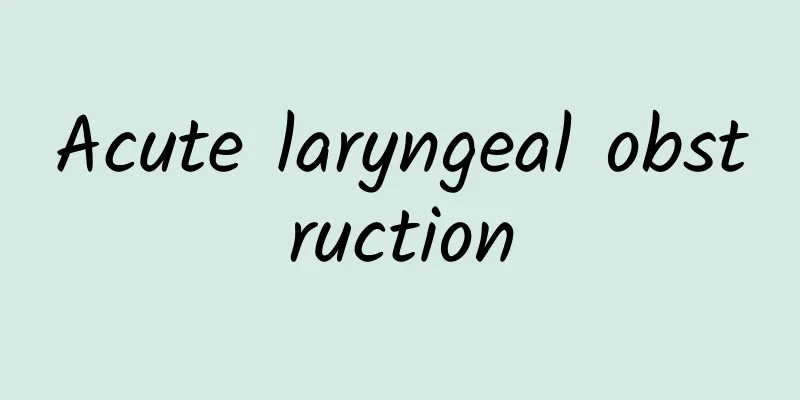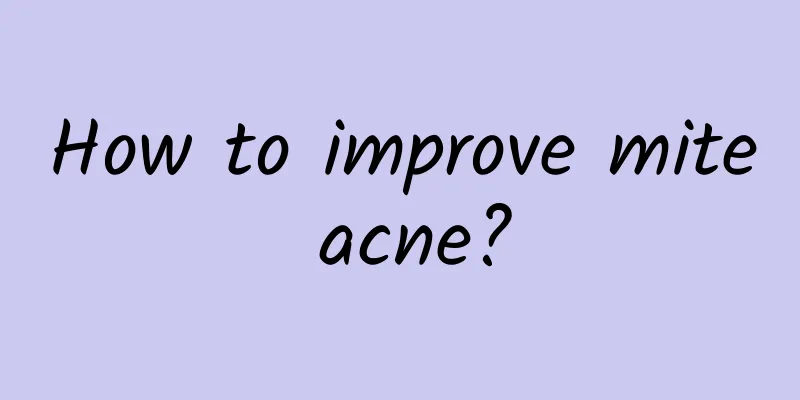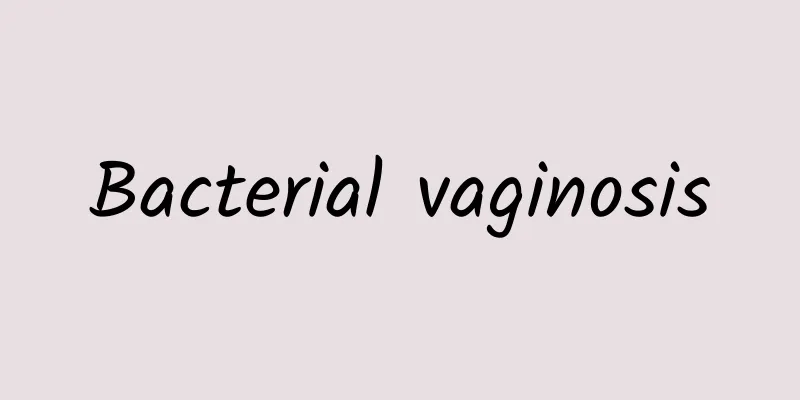Acute laryngeal obstruction

|
Acute laryngeal obstruction refers to breathing difficulties caused by blockage of the throat and adjacent tissue channels, which can cause patients to experience dizziness and shortness of breath. It is recommended that patients should seek medical attention in a timely manner. Acute laryngeal obstruction is mainly caused by inflammation or foreign objects in the larynx, which will manifest as symptoms such as laryngeal ringing and hoarseness. In severe cases, it can lead to death of the patient. It is recommended that patients should pay attention to it and choose to live in an environment with fresher oxygen. Acute laryngeal obstruction is caused by lesions in the larynx or adjacent tissues, which leads to acute narrowing or obstruction of the laryngeal cavity and causes breathing difficulties. It is more common in children and is often caused by laryngeal inflammation, allergies, trauma, foreign bodies, tumors, spasms, and bilateral vocal cord abduction paralysis. Clinical manifestations 1. Difficulty breathing during the inspiratory phase. 2. Larynx sounds during inhalation. 3. During inspiration, the superior and inferior clavicular fossae, suprasternal fossa, and soft tissues under the xiphoid process and between the ribs become concave. 4. Hoarseness may occur. 5. Patients with severe hypoxia may experience rapid and shallow breathing, rapid heart rate, weak pulse, pale face, sweating, cyanosis, and may even suffocate or die from heart failure. Diagnosis 1. Based on the medical history, symptoms and signs: (1) Dyspnea during inspiration; (2) Laryngolaryngitis during inspiration; (3) Depression of the supraclavicular fossa, suprasternal fossa, subxiphoid process and intercostal soft tissue during inspiration; (4) Hoarseness may occur; (5) Patients with severe hypoxia may experience rapid and shallow breathing, rapid heart rate, weak pulse, pale face, sweating, cyanosis, and even suffocation and death from heart failure. 2. If the condition permits, the pharynx, larynx, neck, and chest should be examined and fluoroscopy or radiography should be performed to find the cause of the disease. Treatment principles 1. Relieve breathing difficulties: oxygen supply, anti-infection, hormones, endotracheal intubation, tracheotomy, etc. 2. Etiological treatment: Identify the cause and provide timely treatment. 3. Supportive and symptomatic treatment. Medication principles If laryngeal obstruction is obvious, tracheotomy should be performed. If the obstruction is caused by inflammation or other reasons, after surgical incision, antibiotics listed in item "A" should be used for anti-infection treatment. Efficacy evaluation 1.Cure : Breathing is smooth. For patients who underwent tracheotomy, there was no breathing difficulty after extubation, the wound healed, and there were no sequelae. 2. Improvement: Breathing is smooth, but the cause of the disease has not been completely eliminated. Tracheotomy patients have difficulty in removing the tube. 3. Uncured: Symptoms have not improved significantly or the cause of the disease has not been eliminated even if there is improvement. |
<<: Traditional Chinese medicine formula for fumigating eyes
Recommend
Does acupuncture need to be done every day?
Most people are familiar with acupuncture. It is ...
Why do I feel weak?
If you feel weak at ordinary times, it may be rel...
Can Sanfutie remove moisture?
The May Day holiday has just passed, and I believ...
Prevent stroke with just one hand!
Among the middle-aged and elderly people, most of...
Can gout patients eat sesame seeds?
Everyone should know about gout. The incidence of...
Traditional Chinese Medicine for Chronic Gastritis - Internal Medicine
The temperature is high during the dog days of su...
How to Stew Chicken
Chicken soup has always been considered a good to...
The efficacy and contraindications of Houttuynia cordata
Houttuynia cordata is what we usually call Houttu...
What are the treatments for autoimmune encephalitis?
The treatment of autoimmune encephalitis must fol...
Is temple filling good?
Temple filling is a plastic surgery method. Some ...
Why do I have back pain from sleeping too much?
Sleeping too much may also cause back pain. There...
Why does my face hurt?
There are many reasons for facial redness and pai...
What's wrong with the white spots on my chest?
What's going on with the white spots on my ch...
The difference between fillet and sirloin
Fillet steak and sirloin steak are both relativel...
What Chinese patent medicine is good for anxiety disorder
If the anxiety disorder is more serious, medicati...









